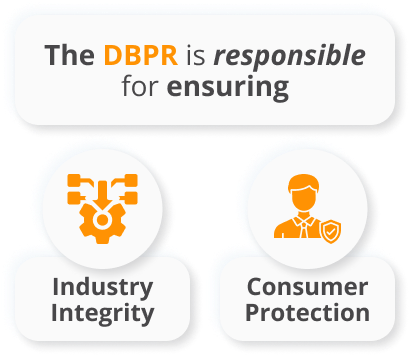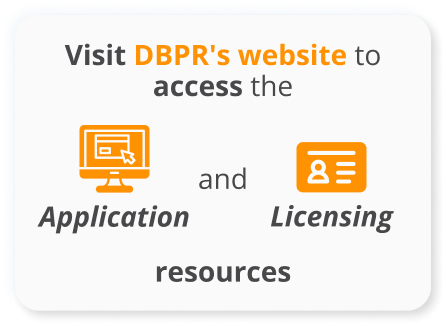Unlocking Success in the Sunshine State: A Pro’s Guide for General Contractor License in Florida!
Step into the world of construction with confidence! Discover the ins and outs of obtaining a General Contractor License in Florida with our expert guide. Whether you’re aiming for a certified or registered license, we’ve got you covered with essential tips, requirements, and insider knowledge to streamline your journey. Dive in to transform your career today!
For information on contractor licenses in Florida, you can refer to the Florida Department of Business and Professional Regulation (DBPR).
Contact Information:
Web: Florida Department of Business Regulation (DBPR)
Alternate Phone Number: 512-463-6599 (For calls outside Texas)
Alternate Phone Number: 512-463-6599 (For calls outside Texas)
Phone: 850-487-1395
Alternate Phone Number: 512-463-6599 (For calls outside Texas)
Alternate Phone Number: 512-463-6599 (For calls outside Texas)
Address:
Main Office: 2601 Blair Stone Road, Tallahassee, FL 32399-1027
The DBPR website offers detailed information, including application forms, licensing requirements, exam information, and guidance on insurance and bonding requirements for contractors in Florida.
Introduction for General Contractor License in Florida
Starting a construction career in Florida? Understanding the state’s licensing requirements is essential. The Florida Department of Business and Professional Regulation (DBPR) issues these mandatory licenses, ensuring contractors meet strict standards and protect both professionals and consumers. The DBPR’s website offers a straightforward application process with resources to guide you. In the following sections, we’ll explore the different licenses and their specific requirements to help you become a licensed contractor in Florida.
Exploring the Spectrum: Certified and Registered Contractor Licenses in Florida
| License Type | Description | Occupation Code |
| Certified | Allows unrestricted work across the entire state of Florida | C |
| Registered | Allows work only in the cities or counties where the contractor is registered | R |
Certified Contractor License: Your Gateway to Statewide Opportunities
Embarking on a career as a Certified Contractor in Florida opens up a realm of possibilities, allowing you to operate across the entire Sunshine State. This prestigious designation is more than just a license; it’s a testament to your expertise, reliability, and commitment to excellence in the construction industry.
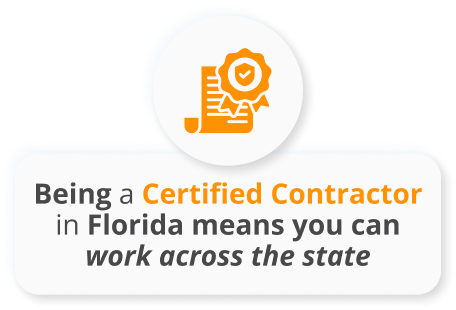
Defining the Certified Contractor, for General Contractor License in Florida
A Certified Contractor in Florida is recognized as a top-tier professional, having met the stringent requirements set forth by the Florida Department of Business and Professional Regulation. This certification is a clear indication of your mastery over your trade, showcasing your ability to handle projects of all sizes and complexities with skill and precision.

The “C” in Certified
Every Certified Contractor is easily identifiable through their unique occupation code, which begins with the letter “C.” This code is not just a label; it’s a badge of honor and a mark of distinction, setting you apart as a contractor who has achieved statewide certification. It signifies that you have undergone rigorous testing, fulfilled all educational prerequisites, and demonstrated unwavering commitment to upholding the highest industry standards.
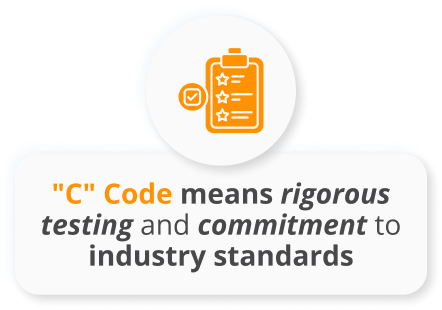
Privileges and Allowances
Holding a Certified Contractor License in Florida comes with a host of privileges and allowances that can significantly enhance your professional journey. Here’s an overview of what this prestigious license brings to the table:
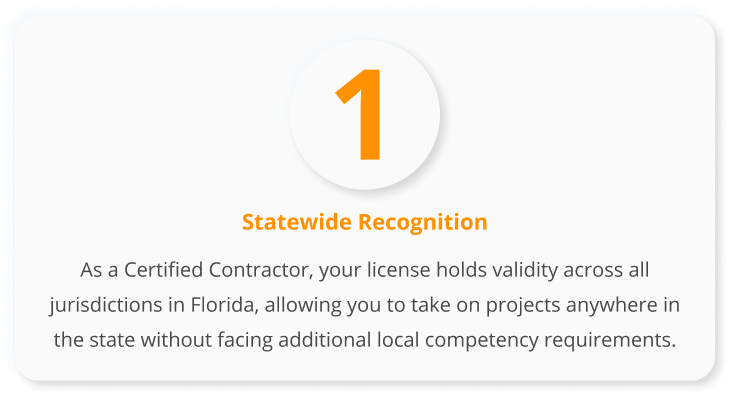


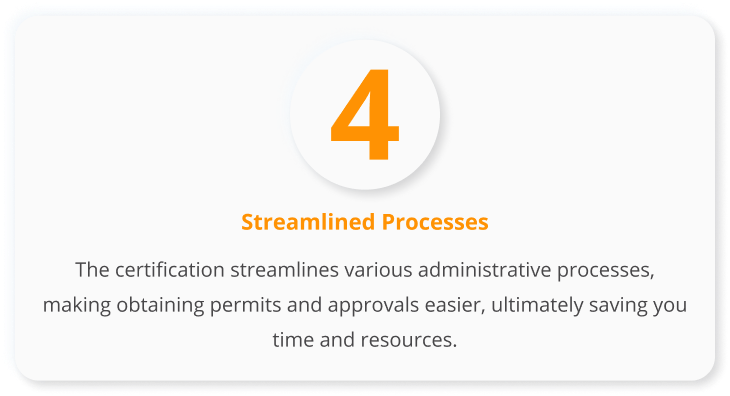
Embracing the role of a Certified Contractor means setting yourself up for success, unlocking doors to statewide opportunities, and establishing yourself as a leader in Florida’s vibrant construction industry.
Registered Contractor License: Thriving in Local Communities
The Registered Contractor License in Florida is tailored for professionals aiming to make a significant impact within specific communities. This designation is perfect for those who wish to concentrate their services, build strong local relationships, and become a go-to expert in particular regions of the Sunshine State.
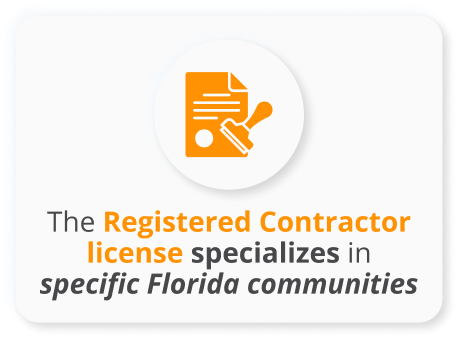
Understanding the Registered Contractor Designation
A Registered Contractor in Florida is recognized as a skilled professional who has met the competency requirements of a specific local jurisdiction. Unlike the statewide Certified Contractor License, the Registered Contractor License is limited to the city or county where the contractor has obtained registration. This designation is ideal for contractors who have a deep understanding of local needs, regulations, and community dynamics, allowing them to provide tailored services that resonate with the residents.

The Jurisdiction-Specific Nature
The Registered Contractor License is inherently jurisdiction-specific, meaning that your ability to take on projects is confined to the areas where you are registered. While this might seem like a limitation, it actually allows for a more focused approach to building your business, fostering stronger connections within the community, and establishing a solid reputation in specific locales.

The “R” in Registered
Every Registered Contractor is designated with an occupation code that begins with the letter “R,” signifying their regional focus and commitment to serving specific communities. This code is a clear identifier of your status as a local expert, someone who understands the unique characteristics of the region and is dedicated to contributing to its development.
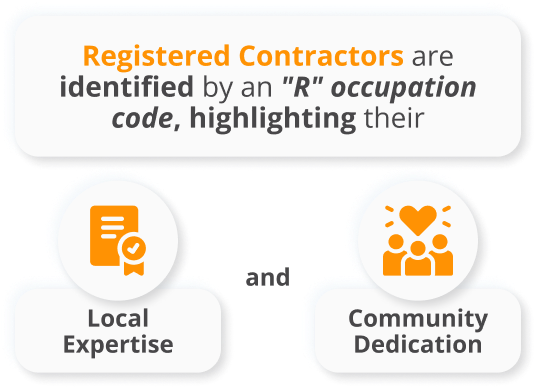
Benefits of Being a Registered Contractor:



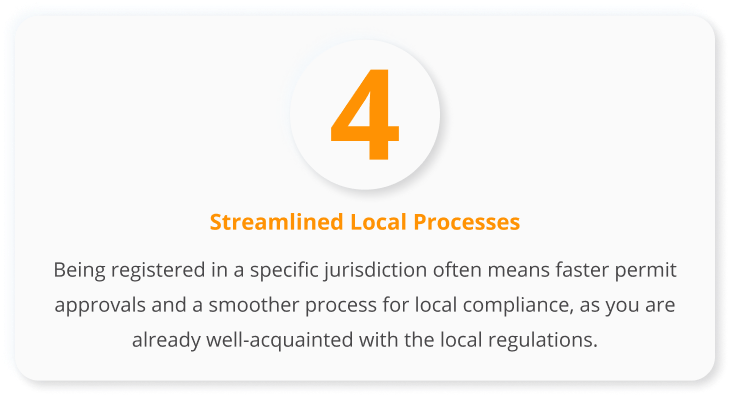
Embracing the role of a Registered Contractor opens up a world of opportunities to make a lasting impact in Florida’s local communities, building a business that is not just successful but also deeply integrated and valued within the regions you serve.
Financial Stability and Insurance Proof: Safeguarding Your Business in Florida
In the competitive landscape of Florida’s construction industry, establishing your financial stability and securing the necessary insurance are crucial steps in safeguarding your business and building trust with clients. The state of Florida takes these aspects seriously, ensuring that all contractors are adequately prepared to handle the financial demands of the industry and protect their employees.
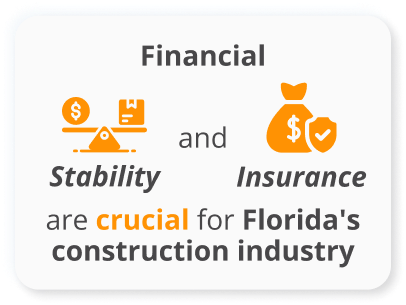
Proving Financial Stability
Demonstrating financial stability is not just a requirement—it’s a cornerstone of a successful contracting business. The state mandates this to ensure contractors have the financial resilience to manage projects efficiently, cover operational costs, and handle any unforeseen circumstances. This proof of financial stability guarantees clients and stakeholders that your business is robust, reliable, and here to stay.
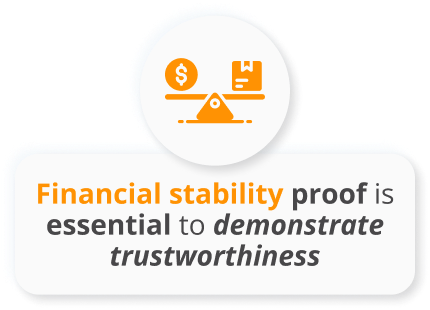
To meet this requirement, contractors must often submit financial statements, credit reports, and other relevant documentation that collectively paint a picture of the business’s financial health. Maintaining a solid financial foundation meets the state’s criteria and positions your business as a trustworthy and dependable choice in the market.
Liability and Worker’s Compensation Insurance
In addition to proving financial stability, securing the right insurance coverage is paramount. Liability insurance protects your business from legal claims arising from accidents, injuries, or negligence. It covers damages and legal costs, ensuring that a single mishap doesn’t jeopardize the financial stability of your business.
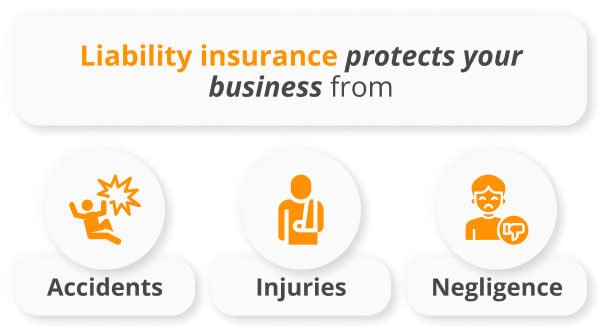
Worker’s compensation insurance is equally crucial, providing coverage for employees who might get injured on the job. This insurance ensures workers receive medical attention and compensation for lost wages, fostering a safe and supportive work environment.
Having these insurance coverages in Florida is not just a best practice—it’s a requirement. The state mandates that contractors carry adequate liability and worker’s compensation insurance to protect their business and employees. This requirement underscores the state’s commitment to maintaining a safe, responsible, and financially secure construction industry.
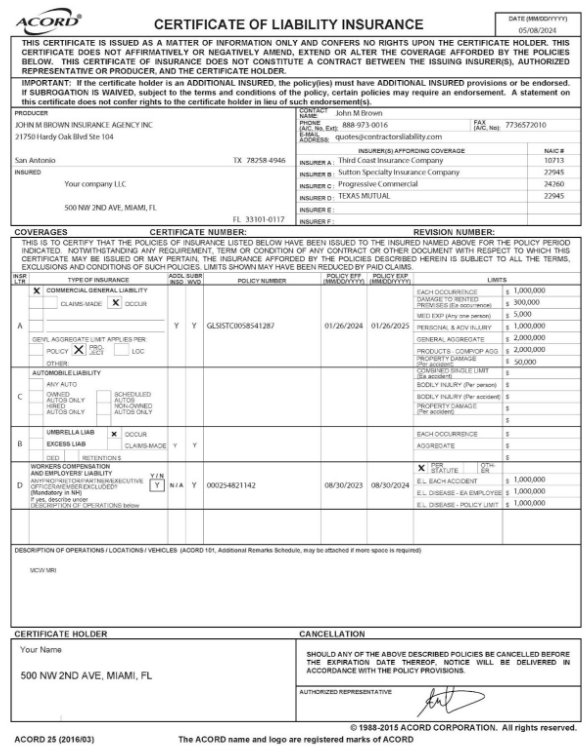
Building a Secure Foundation
By meeting Florida’s financial stability and insurance requirements, you are laying a strong foundation for your contracting business. You are sending a clear message to clients, employees, and the industry that you are committed to operating responsibly, ethically, and with the utmost regard for safety and financial integrity.
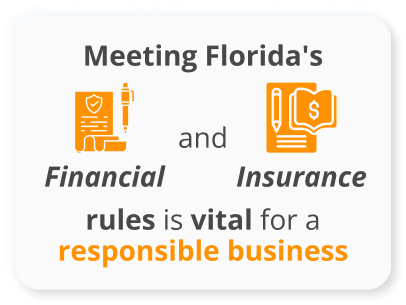
| Insurance Type | Coverage | Typical Coverage Limits | Estimated Annual/Cost |
|---|---|---|---|
| General Liability Insurance | Property damage, bodily injury, personal injury | $300K bodily; $50K property | $700 – $2,500 |
| Workers’ Compensation Insurance | MEmployee medical expenses, lost wages | Varies by payroll and risk | $2,500 – $8,000 |
| Commercial Auto Insurance | Business vehicle liability, damage | Varies based on vehicle and use | $1,200 – $3,500 per vehicle |
| Professional Liability Insurance | Negligence, errors, omissions | Varies based on services and coverage limits | $900 – $3,500 |
| Surety Bonds | Contractual obligations | $5K – $20K bond amount | 1% – 5% of bond ($50 – $1,000) |
Frequently Asked Questions (FAQ)
These are common questions about General Contractor License in Florida.
A contractor’s license is required to ensure that all professionals in the construction industry meet the state’s standards for safety, ethics, and expertise. It protects consumers and maintains the integrity of the industry.
A Certified Contractor License allows you to work anywhere in the state of Florida, while a Registered Contractor License limits your work to specific local jurisdictions.
You need to submit an application to the Florida Department of Business and Professional Regulation, provide proof of experience, financial stability, and insurance, and pass the required examinations.
Certified Contractors have an occupation code that begins with “C,” while Registered Contractors have an occupation code that begins with “R.”
You are required to pass a trade exam that assesses your technical knowledge and skills, as well as a business and law exam to ensure you understand the legal and financial aspects of running a contracting business.


